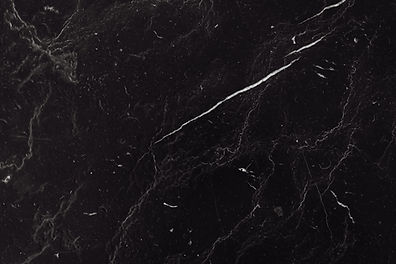Quartz vs. Quartzite: Understanding the Differences Between These Popular Countertop Choices
- Prestige Marble & Granite

- Nov 25, 2024
- 3 min read
When selecting a countertop material, two names you might come across frequently are quartz and quartzite. Despite their similar names, these two materials are quite different in terms of composition, appearance, durability, and maintenance needs. Knowing the key differences between quartz and quartzite can help you make an informed decision when choosing the perfect countertop for your kitchen or bathroom.

1. What is Quartz?
Quartz countertops are engineered stone surfaces made from natural quartz crystals mixed with resins, pigments, and other materials. The result is a non-porous, durable surface that mimics the look of natural stone while offering a wide range of design possibilities.
Key Features of Quartz:
Man-Made Material: Unlike natural stone, quartz is engineered in a controlled environment, allowing manufacturers to create consistent colors and patterns.
Variety of Designs: Quartz countertops come in an array of colors and styles, from solid hues to patterns that resemble natural stones like marble or granite.
Non-Porous Surface: The resin in quartz countertops makes them non-porous, meaning they are resistant to staining and do not require sealing.
Low Maintenance: Cleaning quartz is easy—just use mild soap and water. The non-porous surface also resists bacteria and mold, making it a hygienic choice for kitchens and bathrooms.
2. What is Quartzite?
Quartzite is a natural metamorphic rock that forms when sandstone, rich in quartz minerals, is subjected to intense heat and pressure deep within the Earth. The result is a dense, highly durable natural stone that is often sought after for its unique, marble-like appearance.
Key Features of Quartzite:
Natural Stone: Quartzite is a naturally occurring stone, prized for its organic beauty and one-of-a-kind patterns.
Unique Appearance: Quartzite typically features subtle veining and variations in color, offering a look similar to marble but with the added durability of a harder stone.
Durability: Quartzite is one of the hardest natural stones, making it highly resistant to scratches and heat. It’s an excellent choice for busy kitchens.
Requires Sealing: Unlike quartz, quartzite is porous and needs to be sealed regularly to prevent staining from spills and moisture.
3. Comparing Quartz and Quartzite
Now that we know what quartz and quartzite are, let's compare them in key areas:
Feature | Quartz | Quartzite |
Origin | Engineered Stone | Natural Stone |
Appearance | Uniform, Consistent Colors & Patterns | Unique, Natural Veining & Variations |
Durability | Highly Durable, Scratch & Stain Resistant | Extremely Hard, Scratch Resistant |
Maintenance | Low Maintenance, No Sealing Needed | Requires Sealing, Higher Maintenance |
Heat Resistance | Moderately Heat Resistant | Highly Heat Resistant |
Cost | Moderate to High | Typically Higher Than Quartz |
4. Pros and Cons of Quartz and Quartzite
Quartz Pros:
Wide Range of Colors: The engineering process allows for a vast selection of colors and styles, suitable for any design.
Low Maintenance: Its non-porous surface makes it resistant to stains and bacteria, requiring minimal upkeep.
Consistency: Because it’s man-made, quartz offers a uniform appearance, ideal for modern, streamlined spaces.
Quartz Cons:
Not Completely Natural: For homeowners who prefer 100% natural stone, quartz may not be the ideal choice.
Susceptible to Heat Damage: Direct exposure to high heat can damage the resins in quartz, so it’s best to use trivets or hot pads.
Quartzite Pros:
Natural Beauty: Quartzite offers a unique, natural look that closely resembles marble, with distinctive patterns and veining.
Exceptional Hardness: As one of the hardest natural stones, quartzite resists scratches and can withstand heavy use.
High Heat Resistance: It handles high temperatures well, making it a great choice for kitchen countertops.
Quartzite Cons:
Higher Maintenance: The porous nature of quartzite requires regular sealing to prevent stains.
Less Color Variety: Quartzite’s color palette is limited compared to engineered quartz, as it depends on the natural minerals present in the stone.
5. Choosing the Right Material for Your Home
When deciding between quartz and quartzite, consider your lifestyle, design preferences, and maintenance expectations.
If you want a low-maintenance countertop with a wide range of colors and patterns, quartz is an excellent choice.
If you prefer a natural, unique look with high durability and are willing to invest time in sealing and maintenance, quartzite might be the better option.
Conclusion
Both quartz and quartzite offer stunning aesthetics and durability for countertops, but they serve different needs based on your preferences and lifestyle. Understanding the differences can help you make a confident decision when selecting the right material for your home.
Whether you’re drawn to the engineered perfection of quartz or the natural elegance of quartzite, both options can enhance the beauty and functionality of your space. Ready to make your choice? Contact us today for expert guidance and to explore our extensive selection of quartz and quartzite countertops!





